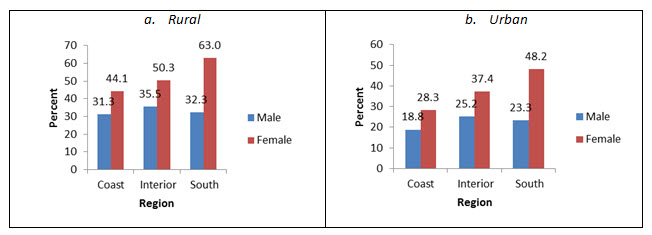I was in Tunisia last week and lived with the Tunisian people the shocking terrorist attack that occurred at the Bardo Museum on Wednesday March 18. It was a tragic day for Tunisia, for the Middle East and North Africa (MENA) region and for the world at large. It was yet another demonstration of the fragility that not only hampers growth in the region but also threatens global stability and prosperity. Violence and conflict feed the vicious circle leading to economic stagnation and social exclusion that, in turn, lead to even more violence. Today, more than ever, we should all unite to support Tunisia so that it can break this cycle.
Tunisians have demonstrated political courage and determination in the pursuit of a more democratic and inclusive society. The crucible of the Arab Spring, Tunisia has managed to chart a path based on consensus and compromise. It is what sustained a remarkable transition that included the adoption of a historic constitution and culminated in free and fair presidential and parliamentary elections at the end of 2014.
Since 2010, economic activity has remained slow, and even deteriorated along with the social situation. Tunisia’s economy is marked by anemic growth, high fiscal deficits, low investment and rising youth unemployment. In 2014, growth stagnated at 2.3 percent, and large fiscal and current account imbalances have increased since 2010 to reach respectively -6.4 percent and -7.9 percent of GDP. With only moderate rebound in growth expected in 2015, the sizeable fiscal gaps threaten macro-stability and the medium-term scenario remains uncertain, hampered by the fragile security situation and consequent negative impact on investors’ confidence.
Table: Tunisia/Selected Economic Indicators, 2010-2014

Source: Tunisian authorities; IMF staff estimates
Unemployment remains the major source of concern, in particular youth unemployment which has continued to increase from 28.3 percent to 31.2 percent between 2008 and 2013. While the formal private sector did not grow fast enough to absorb the large number of educated young people entering the job market, informal employment soared.
Informality, with its lack of guarantees and regulations, has proved especially inhospitable to women. The female labor force participation rate in Tunisia is less than 25 percent. Along with rising informality, the country has witnessed rising poverty and regional disparities with poverty rates ranging from 8-9 percent in the Center East region and Grand Tunis to a high of 26 percent and 32 percent in the North West and Center West regions.
Figure 1: Youth rates for neither in education, employment or training (NEET) by region

Source: World Bank (2014)
Unemployment rates are strikingly high among college graduates, underlying the growing mismatch between skills and employment. Each year, only 35,000 jobs are created while at the same time, 60,000 graduates enter the labor market. Of equal concern are the number of young people between the ages of 15 and 29 who are permanently stalled between school and work. As figures above show, the rates for youth who are neither working nor in education or training are high everywhere, but especially pronounced in rural areas, where they climb to 63 percent for women.
This is not only a waste of precious human resources but a major risk for the future of Tunisia. Without an economic stake in the future of the country, an entire generation of frustrated youth will feel increasingly alienated from society; some of whom may be tempted by extremist ideologies.
The Bardo museum attack, through its probable impact on tourism, will make the task of growing the economy and creating greater opportunities more difficult. The tourism industry accounts for more than 12 percent of Tunisia’s GDP, with one in 10 Tunisians employed in the tourism industry and one in five relying on it to make a living. Since 2011, Tunisia witnessed a dramatic dip, with only 6 million tourists in 2014. This is 3 percent less than in 2013 and 12 percent less than in 2010.
While there were signs of recovery in early 2015 (with a 24 percent increase in tourism income compared to 2010), the terrorist attack is likely to take a toll on the entire 2015 summer season. On March 19, the local stock exchange dropped by 2.5 percent and tour operators and cruise companies started cancelling trips to and stops in Tunisia. The launch of an international campaign titled “I will go to Tunisia” is an encouraging reaction. But will it suffice to mitigate the impact on the economy?
Now is the time to support Tunisia and help it to rebuild its economy and create more and better opportunities. Strengthening the economy is fundamental to lift people out of poverty, open a new front against extremism and ultimately fight terrorism. With the Bardo museum reopened , millions continue to look at Tunisia as a beacon of openness and tolerance in the Arab world. The time has now come to put special focus on economic and social reforms that will foster inclusive growth.
The international community has on several occasions committed itself to providing full support to the government and the people of Tunisia. It is time to make good on those promises to encourage economic and social development and ensure that the political transition is accompanied by an economic transition towards shared prosperity.
Editor’s note: This article was originally published in French on The Huffington Post.
Commentary
It’s time to support Tunisia…and to focus on the economy
April 2, 2015